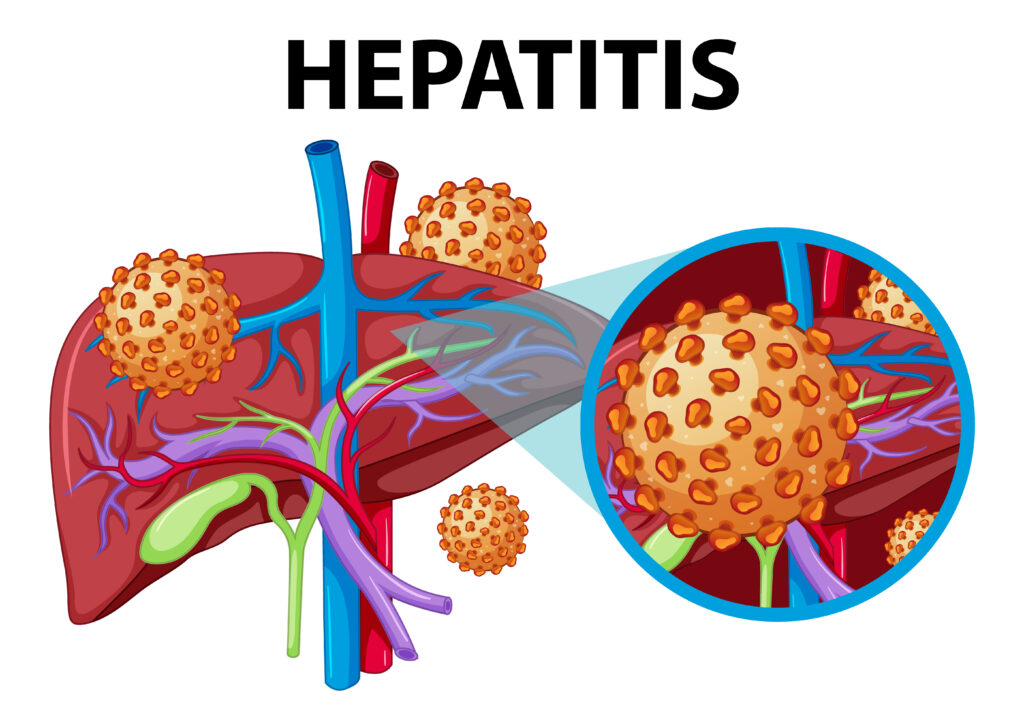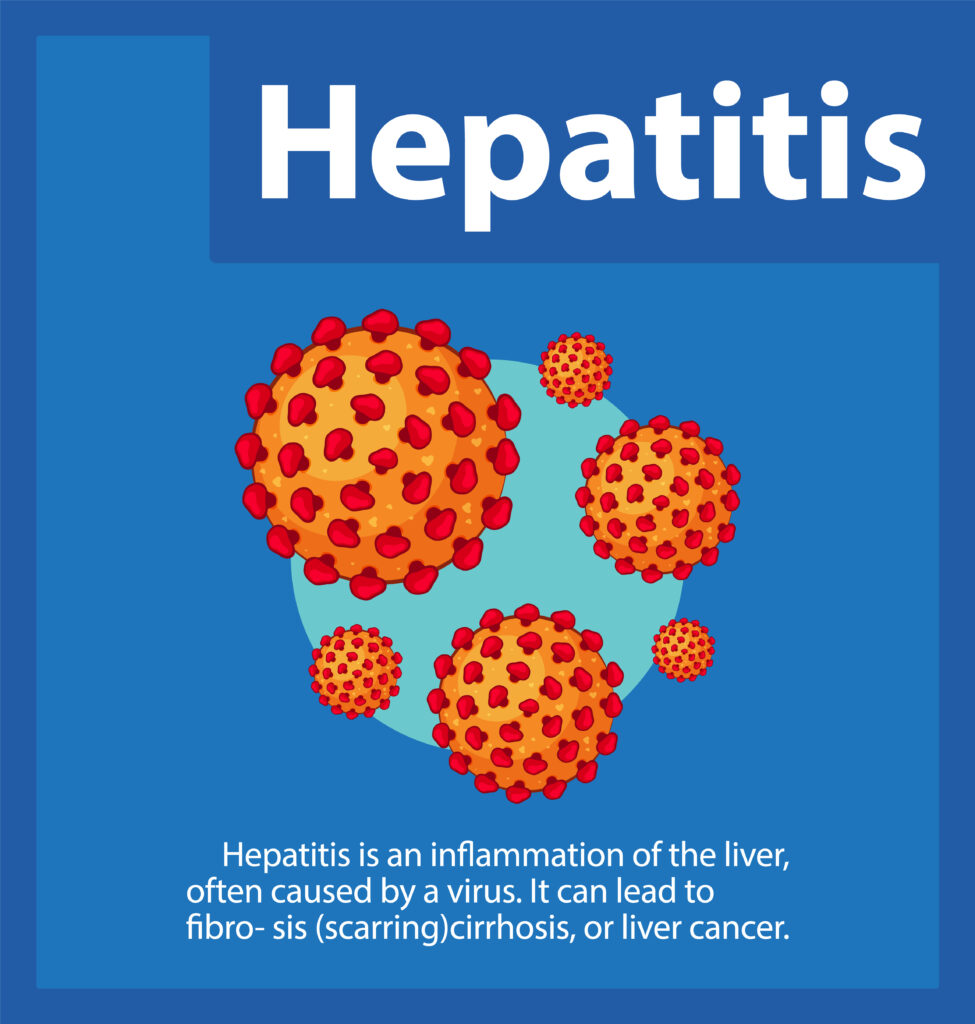How Hepatitis B and C Increase the Risk of Liver Cancer

Did you know that two of the world’s most common viral infections, hepatitis B and hepatitis C are also among the leading causes of liver cancer?
Millions of people carry these viruses without even knowing it, and while the early stages may show no symptoms, the long-term consequences can be life-threatening.
If left untreated, these infections silently damage the liver, increasing the chances of cirrhosis and cancer.
Through this blog, you will learn how hepatitis B and C can cause liver cancer, the types of medical tests used to detect liver cancer early, whether liver cancer is contagious or not, effective ways to prevent liver cancer, and protect your health.
By understanding the above aspects, you can take proactive steps to safeguard your liver and reduce the risk of serious complications.
Can Hepatitis B Cause Liver Cancer?
Yes, hepatitis B can cause liver cancer. Chronic hepatitis B infection leads to continuous inflammation and damage to liver cells. Over time, this persistent injury may result in scarring (fibrosis) and cirrhosis, creating the perfect environment for liver cancer to develop.
Even without cirrhosis, hepatitis B has a direct oncogenic effect; it can integrate its DNA into liver cells, altering their growth and increasing the risk of hepatocellular carcinoma (HCC), the most common type of primary liver cancer.

Hepatitis C and the Risk of Liver Cancer
Similar to hepatitis B, hepatitis C can also trigger liver cancer. Its chronic infection promotes long-term inflammation and liver cell injury. Cirrhosis can significantly raise the chances of developing Hepatocellular Carcinoma (HCC). Unlike hepatitis B, hepatitis C does not insert its genetic material into liver cells but causes cancer primarily through scarring and liver dysfunction.
Importantly, people with hepatitis C who achieve a sustained virologic response (SVR) after antiviral treatment still need lifelong monitoring, as their cancer risk, while reduced, never fully disappears.
How Liver Cancer Develops in Hepatitis Patients
Development of liver cancer from hepatitis usually involves the following series of events.
- Chronic inflammation: Ongoing immune attacks damage liver cells.
- Fibrosis and cirrhosis: Repeated injury leads to scar tissue, replacing healthy liver cells.
- Genetic changes: Mutations occur in liver cells, disrupting normal growth and repair.
- Tumor formation: Mutated cells eventually multiply uncontrollably, forming liver cancer.
Liver Cancer Test: Detecting the Disease Early
Early detection of liver cancer is life-saving, especially for individuals suffering from or who have suffered from chronic hepatitis B or C.
A liver cancer test includes:
- Blood tests: Alpha-fetoprotein (AFP) levels can indicate cancer activity.
- Liver function tests: Assess the overall health of the liver.
- Imaging scans: Ultrasound, CT, or MRI to detect suspicious growths.
- Liver biopsy: A tissue sample confirms the diagnosis and type of cancer.
For hepatitis patients, regular screening is recommended even without symptoms.
Is Liver Cancer Contagious?
A common concern among patients is: “Is liver cancer contagious?” The answer is no. Liver cancer cannot spread from one person to another.
What may be contagious are the underlying viral infections, hepatitis B and hepatitis C, which are transmitted through blood, unprotected sex, contaminated needles, or from mother to child during childbirth. Preventing viral transmission is key to reducing overall liver cancer risk.
How to Prevent Liver Cancer
Prevention should be targeted at reducing the risk factors and protecting the liver from infection and injury. Here are key strategies:
- Get vaccinated: A safe and effective vaccine exists for hepatitis B.
- Practice safe behaviors: Avoid sharing needles, practice safe sex, and ensure safe blood transfusions.
- Treat hepatitis infections: Antiviral therapies can control hepatitis B and cure hepatitis C, lowering, but not eliminating, the risk of cancer.
- Avoid excessive alcohol use: Alcohol accelerates liver damage.
- Maintain a healthy weight: Obesity and associated fatty liver disease are additional risk factors.
- Attend regular check-ups: They are essential for those diagnosed with hepatitis B or C.
With a combination of vaccination, antiviral treatment, lifestyle adjustments, and regular monitoring, one can significantly reduce the risk of developing liver cancer.

King’s Liver Transplant Centre: Comprehensive Liver Care
King’s Liver Transplant Centre has a multifaceted team that offers a spectrum of care, from early screening for hepatitis-related complications to the latest liver cancer treatment and transplantation when required. The team is committed to providing patients with evidence-based care and compassionate support at every step of their journey.
Why Choose King’s Liver Care?
Choosing the right centre for liver health can make all the difference. At King’s Transplant Centre, patients benefit from:
- International expertise – A proud extension of King’s College Hospital London with globally recognized standards.
- Comprehensive care – From hepatitis management to advanced cancer surveillance and transplantation.
- State-of-the-art diagnostics – Cutting-edge imaging and lab facilities for accurate liver cancer tests.
- Multidisciplinary approach – A team of hepatologists, transplant surgeons, oncologists, and counsellors working together.
- Personalized treatment plans – Tailored to each patient’s unique condition and long-term health goals.
- Compassionate support – Ongoing counselling and education to help patients and families through every stage of care.
Overview
Related Post
Safeguarding Your Liver Health With King’s Liver Transplant Centre
Hepatitis B and C are not just viral infections; they are major risk factors for liver cancer. While the risk is real, it can be managed with preventive strategies, timely treatment, and regular monitoring.
With vaccination, early testing, lifestyle changes, and timely treatment, the risk can be significantly reduced.
If you have hepatitis or are concerned about your liver health, early evaluation and testing can save lives. Now is the time to act.
Your liver health matters. Schedule your consultation with King’s Liver Transplant Centre and take the first step towards prevention and protection.

